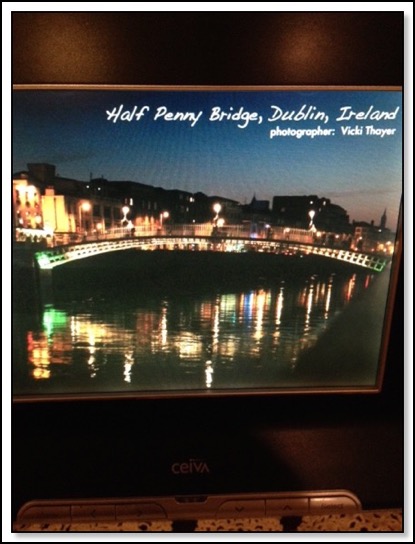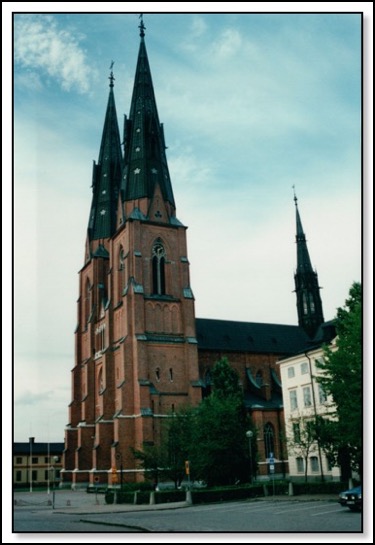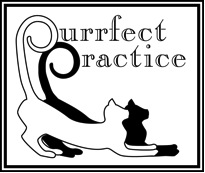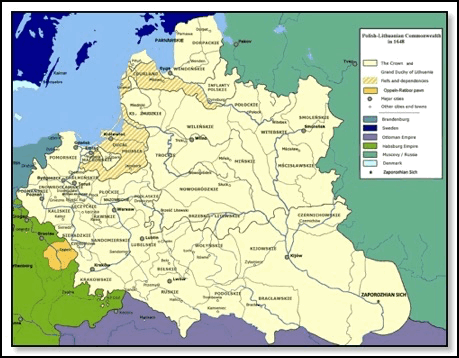Europe
Longyearbyen, Northernmost Town
09/07/16 11:11 Filed in: Interests
When visiting our friends in Walnut Creek, John and Josie Fike, they talked about visiting Norway in 2014 and going very far North to see the sites and visit a former au pair, Lisa, who lived there.
Here is an article about Longyearbyen, the most Northern town on Earth and is also in Norway.
Here is an article about Longyearbyen, the most Northern town on Earth and is also in Norway.
Comments
The Mongols
29/05/16 08:58 Filed in: History
Scientists may now know what stopped the Mongol horde from taking over Europe…it rained too much and this affected the crops to feed their war horses. Ghengis Khan did have a foe and one he could not defeat.
"In 1206, Genghis Khan, a fierce tribal chieftain from northern Mongolia, began to take over the world. The khan’s ruthless tactics and loyal horde swept across Asia.
One territory after another fell under the overwhelming force of the Mongol Empire, which would eventually stretch from the eastern shores of China. A series of successful forays in Hungary and Poland made even Europe seem within reach of conquering.
But this unstoppable wave of victories in Europe suddenly ended. Almost as soon as the Mongols set their sights set on Austria, they abruptly returned to Asia."
"In 1206, Genghis Khan, a fierce tribal chieftain from northern Mongolia, began to take over the world. The khan’s ruthless tactics and loyal horde swept across Asia.
One territory after another fell under the overwhelming force of the Mongol Empire, which would eventually stretch from the eastern shores of China. A series of successful forays in Hungary and Poland made even Europe seem within reach of conquering.
But this unstoppable wave of victories in Europe suddenly ended. Almost as soon as the Mongols set their sights set on Austria, they abruptly returned to Asia."
Other European Ancestors
06/01/16 11:34 Filed in: History
Archeology has found a fourth set of ancestors based on DNA results.
"Prior to summer 2015, researchers believed that all Europeans had a shared ancestry stemming from three tribal populations: European hunter-gatherers, early European farmers, and ancient North Eurasians. According to an article published this week in the journal Nature Communications, by studying the genomes of ancient skeletons found in two caves in Western Georgia (Kotias Klde and Satsurblia), geneticists have discovered a fourth group, Caucasus hunter-gatherers, who also contributed DNA to the continent."
Read more of the details here.
"Prior to summer 2015, researchers believed that all Europeans had a shared ancestry stemming from three tribal populations: European hunter-gatherers, early European farmers, and ancient North Eurasians. According to an article published this week in the journal Nature Communications, by studying the genomes of ancient skeletons found in two caves in Western Georgia (Kotias Klde and Satsurblia), geneticists have discovered a fourth group, Caucasus hunter-gatherers, who also contributed DNA to the continent."
Read more of the details here.
Munich, An Earlier Terror
04/12/15 06:56 Filed in: History
In 1969, I was lucky to visit Europe while I was still in high school. Our trip took us to Munich where I saw the initial construction of the Olympic sites for the 1972 Olympics. During the Olympics, Palestinian terrorists took Israeli athletes and coaches hostage. The hostages died or were killed. Here is a recent article about newer information released that showed some were severely tortured during their captivity. Sadly, we don't see much changed in terror in this day and age.
Nuremberg Anniversary
20/11/15 05:49 Filed in: History
Seventy years ago today was the start of the Nuremberg Trial of German leaders for war crimes. Here is an interesting article about three men who advocated for the trials and three roads to achieve the end results.
"Much of what we now understand as the Holocaust—the persecution of the German Jews in the 1930s, the evolution of systematic, European-wide mass murder during the Second World War, the number 6 million, ghettoization, the rampages of the Einsatzgruppen, the death camps in Eastern Europe, the uprising of the Warsaw Ghetto—became part of the proceedings of the Nuremberg Trial of 1945-46 thanks in good measure to three Jewish advocates, none of whom was formally part of the prosecution. Each of them was a lawyer; each was an émigré from an Eastern Europe ravaged by the slaughter of Jewish people during the war, and each, in his own way, drew an important conclusion drawn from the catastrophe that his community of origin had undergone."
"Much of what we now understand as the Holocaust—the persecution of the German Jews in the 1930s, the evolution of systematic, European-wide mass murder during the Second World War, the number 6 million, ghettoization, the rampages of the Einsatzgruppen, the death camps in Eastern Europe, the uprising of the Warsaw Ghetto—became part of the proceedings of the Nuremberg Trial of 1945-46 thanks in good measure to three Jewish advocates, none of whom was formally part of the prosecution. Each of them was a lawyer; each was an émigré from an Eastern Europe ravaged by the slaughter of Jewish people during the war, and each, in his own way, drew an important conclusion drawn from the catastrophe that his community of origin had undergone."
Porto Portugal
22/10/15 16:42 Filed in: Interests
I was not able to go to the International Society of Feline Medicine meeting this past summer in Porto, Portugal. I'm sure it was wonderful to visit. I was surprised to read of the struggles of Portugal and that Porto has been a bit of a ghost town trying to come back to life. See more about Porto here.
Agincourt - We Band of Brothers
17/10/15 16:13 Filed in: History
Being an English history buff and also of the time period of the Plantagenets, I found it very interesting about the reminder that this is the 600th Anniversary of Henry V's victory over the French in Agincourt. To read a bit of background on this battle and Henry, one can go here. Certainly it is worth considering watching Shakespeare's Henry the Vth along with Richard the II and Henry the IVth in plays. Shakespeare could bring back the drama of those medieval times even if likely exaggerated in one direction but still brutal in another.
Ebola and Ancient Athens?
20/06/15 15:23 Filed in: History
Could Ebola have actually occurred in ancient Greece? Ebola is quite old and DNA has been found in a number of different species of animals. It could have been the cause of the infamous Plague of Athens that began in 430 B.C. More can be read about it here.
"The ancient nature of the disease "raises the question of whether Ebola may have spilled over from its animal reservoir to humans well before scientists first identified it in 1976," study author Powel Kazanjian, a professor of history and infectious diseases at the University of Michigan, told Live Science.
In the new paper, Kazanjian suggests that an Ebola virus may have been the culprit in the infamous Plague of Athens, a five-year epidemic that began in 430 B.C., whose cause has long been a matter of conjecture among physicians and historians. The famed historian Thucydides, who chronicled the Peloponnesian War between the rival city-states of Athens and Sparta, was not only an eyewitness to the Athenian disease, but also contracted it himself and survived."
"The ancient nature of the disease "raises the question of whether Ebola may have spilled over from its animal reservoir to humans well before scientists first identified it in 1976," study author Powel Kazanjian, a professor of history and infectious diseases at the University of Michigan, told Live Science.
In the new paper, Kazanjian suggests that an Ebola virus may have been the culprit in the infamous Plague of Athens, a five-year epidemic that began in 430 B.C., whose cause has long been a matter of conjecture among physicians and historians. The famed historian Thucydides, who chronicled the Peloponnesian War between the rival city-states of Athens and Sparta, was not only an eyewitness to the Athenian disease, but also contracted it himself and survived."
Waterloo
19/06/15 15:14 Filed in: History
No, I am not referring to the small community located 5 miles from here on the way to Lebanon. Yesterday was the 200th Anniversary of the Battle of Waterloo in Belgium. Wellington and the British defeated Napoleon and his mix of French and other European countries' armies. For some discussion of the ceremonies and re-enactments, they can be found here. A discussion and breakdown of the different engagements and battle can be located here. Did Waterloo decide Europe's fate? Well, I assume if Napoleon one, he would have been more insufferable.
The Real Machiavelli
02/03/15 20:35 Filed in: History
Machiavelli was the earlier form of cutthroat politician type. He wrote the blueprint for Saul Alinksy type tactics.
He wrote the book, The Prince, though some think it might have been meant to be a satire.
Entangled in Florentine politics during a tumultuous time at the height of the Renaissance, Niccolò Machiavelli became alternately a diplomat, a victim, a prisoner, an exile and, ultimately, the “father of modern political theory.” And although he remains famous today for his well-articulated methods for ruthlessly thriving in a corrupt world, he never said the phrase that is most often attributed to him: “the ends justify the means.”
Check him out here.
He wrote the book, The Prince, though some think it might have been meant to be a satire.
Entangled in Florentine politics during a tumultuous time at the height of the Renaissance, Niccolò Machiavelli became alternately a diplomat, a victim, a prisoner, an exile and, ultimately, the “father of modern political theory.” And although he remains famous today for his well-articulated methods for ruthlessly thriving in a corrupt world, he never said the phrase that is most often attributed to him: “the ends justify the means.”
Check him out here.
Ideal Communist City
22/01/15 19:16 Filed in: History
Planners of a particular mind set are looking at ways to get more people to live in dense urban environments, close together, and to use urban transit systems. Not my cup of tea to be sure. Maybe the precursor to their ideal now was what people thought were the ultimate communist city model in the Soviet Union. I saw this sort of lifestyle in East Berlin when I visited there in 1969. Again, not the way I would live, especially behind the Berlin Wall which I saw first hand (along with the crosses for those who were killed trying to leave over No Man's Land. So take a look at what was in our past and may never be totally out of possibility with the socialist leaning minds out there.
My Ceiva Picture
07/01/15 17:31 Filed in: Photography
It is really cool to see one of the pictures I submitted for a photo contest show up on our Ceiva display. One photo I took of the Half Penny Bridge over the Liffey River in Dublin Ireland was one. It was a night photo and had great colors reflecting off the river. I rested my small Canon G-10 on the edge of the bridge to support it instead of on a tripod. It seemed to offer enough support. This is not the greatest photo from a camera of the Ceiva frame as the photo came up at one time but it shows what it is. Others around the country or world who have this unit will see my photo.


Coffins and Kings
24/04/14 08:18 Filed in: History
The past few years seem to be the time of resurrecting kings of older European history. I have mentioned before the unearthing of King Richard III of England’s remains in England. Now the Swedish have opened the 850 year old coffin of King Eric IX who was murdered and later made a Saint. They have his skull and crown on display in the cathedral at Uppsala. Bob and I have visited Uppsala and the twin spires of the cathedral rise well above the town in a recognizable manner. Uppsala is a very pretty city and was a joy to visit. Read about King Eric’s unearthing here.
“Scientists plan to study the bones of the ruler known as King Erik the Holy because so little is known about him. Through DNA testing and X-ray scans, they hope to learn about his health, his ancestry (some think his father was English), what he ate, and where he lived—it seems there's a longstanding disagreement over whether he was from Uppsala, where he was killed and laid to rest, or the west coast.”
Uppsala Cathedral

“Scientists plan to study the bones of the ruler known as King Erik the Holy because so little is known about him. Through DNA testing and X-ray scans, they hope to learn about his health, his ancestry (some think his father was English), what he ate, and where he lived—it seems there's a longstanding disagreement over whether he was from Uppsala, where he was killed and laid to rest, or the west coast.”
Uppsala Cathedral

Fascism and Communism
Jonah Goldberg has written a number of articles and a book about the twin political beliefs, fascism and communism. In this article, he gives the argument again that a political theories, they are not opposites as many portray them. They are actually closely related with different economic arms to that particular political philosophy. I agree with his take on it though I am sure there would be plenty of heavy debate on that statement. His article can be found here. The current situation occurring between Russia, the Ukraine, and the Crimea demonstrates quite nicely how this operates in real time.
Ukrainian Uprising
07/03/14 09:02 Filed in: Politics
Since November 2013, the Ukrainian population has taken to the streets in Kiev to protest the President of the Ukraine turning away from ties with the European Union and moving ties toward Russia. Many, especially in the western part of the country feel closer to the EU, others in the eastern section are tied closer to Russia. This resistance has led to the President (former now) fleeing to Russia and abandoning his palatial home. Russia has asserted its power and position to the Ukraine by taking over the Crimea area and placing it under total Russian control. One article I had saved a few weeks ago about the Ukrainian resistance and uprising against police tactics discusses how the people fought back by using medieval tactics and weaponry. A discussion of this is found here.
Hitler versus Stalin
05/03/14 20:28 Filed in: History
I have written previously about a very good history professor and author, Timothy Snyder. He is a professor at Yale University and has considerable expertise on the Eastern European sphere of World War II. He currently has an article about how we should view the acts of Hitler versus Stalin. Who might be worse? Are the shear numbers of people killed more horrendous than the way they were killed? Did the killings overlap in some countries and could be attributed in some manner to both men? Even out of these numbers, even the difference of one is a human soul that should be mourned. It takes a lot of “ones” to add up to the millions lost. Snyder claims that the numbers attributed to Stalin may be less than surmised since more came back from the Gulag alive than previously reported. Yet, the numbers lost before the war were great and often not considered to the level of casualties during the war. Please read his work here.
The Black Death and European Genes
18/02/14 19:50 Filed in: Interests
Did the Plague, or the Black Death as it also is known, alter the genetic makeup of the people of Europe? Scientists with a recent study do believe so. As they said in the movie, Monty Python’s The Holy Grail, “Bring out your dead!”
“The Black Death of the 14th century may be written into the DNA of survivors' descendants, new research finds.
The study reveals that Roma people (sometimes known as gypsies, although this is considered a derogatory term) and white Europeans share alterations to their genetic code that occurred after the Roma settled in Europe from northwest India 1,000 years ago. The plague of the 1300s, which killed at least 75 million people, is a likely candidate for forcing this evolutionary change.”
“The Black Death of the 14th century may be written into the DNA of survivors' descendants, new research finds.
The study reveals that Roma people (sometimes known as gypsies, although this is considered a derogatory term) and white Europeans share alterations to their genetic code that occurred after the Roma settled in Europe from northwest India 1,000 years ago. The plague of the 1300s, which killed at least 75 million people, is a likely candidate for forcing this evolutionary change.”
Charlegmagne
08/02/14 10:30 Filed in: History
Reports indicate that the bones on display at a German Cathedral said to be of the Frankish King, Charlemagne, are likely authentic. Interesting information following the finding of Richard III of England’s bones. We are connecting with medieval history through current research and technology. One can read the report here.
“Sometimes called the "Father of Europe," Charlemagne stabilized much of mainland Europe after a long period of decline following the late fifth-century breakup of the Roman Empire. Besides being a great military leader, he ushered in the Carolignian Renaissance, a cultural revival marked by a boom in the arts and education reform. Charlemagne became the first Holy Roman Emperor when he was crowned by Pope Leo III on Christmas Day in A.D. 800.
Though he was the son of "Pippin the Short," Charlemagne was said to have an impressive physique. Rühli was involved in a study of the king's tibia in 2010, published in the journal Economics and Human Biology, finding that Charlemagne would have stood about 6 feet (1.84 meters) tall, towering over 98 percent of the population of his day.”
“Sometimes called the "Father of Europe," Charlemagne stabilized much of mainland Europe after a long period of decline following the late fifth-century breakup of the Roman Empire. Besides being a great military leader, he ushered in the Carolignian Renaissance, a cultural revival marked by a boom in the arts and education reform. Charlemagne became the first Holy Roman Emperor when he was crowned by Pope Leo III on Christmas Day in A.D. 800.
Though he was the son of "Pippin the Short," Charlemagne was said to have an impressive physique. Rühli was involved in a study of the king's tibia in 2010, published in the journal Economics and Human Biology, finding that Charlemagne would have stood about 6 feet (1.84 meters) tall, towering over 98 percent of the population of his day.”
More Ukraine
31/01/14 20:14 Filed in: History
Ukraine Today
29/01/14 19:08 Filed in: Interests
For the past few months, the country of Ukraine has been in turmoil. A large number of the population are objecting to their leader’s cave-in to Putin of Russia to scrap a treat tying them closer to the European Union. Russia wants to rebuild their sphere of influence, much like what the geographical set up was for the Soviet Union. The Ukraine, being a large country and often the breadbasket for much of the surrounding countries, is key. What happens here has a lot of impact for Europe, Russia, and also the United States. The Ukraine has been important in much of the European and world’s political power plays for the past two centuries. And how they have suffered for it. It was a battleground between Germany and Russia in the 1930s and 40s. The people are standing up to their government and are “in revolution”. It is interesting though to note that the western part of Ukraine is more Europe disposed while the eastern portion has maintained its Russian ties. This article shows a large number of photos of what has been happening in Kiev recently.
Westphalia
22/05/13 19:03 Filed in: History
As a prelude to issues occurring in the European Union in modern times, there was war and turmoil in similar parts of Europe in the early 1600’s. The Treaty of Westphalia helped to bring a close to the Thirty Years’ War. A description of the war and treaty are found here.
In an early version of the EU is described in this manner:
Principles of Westphalia
The Treaty of Westphalia of 1648, bringing an end to the Thirty Years' War, which had drowned Europe in blood in battles over religion, defined the principles of sovereignty and equality in numerous sub-contracts, and in this way became the constitution of the new system of states in Europe.
In an early version of the EU is described in this manner:
Principles of Westphalia
The Treaty of Westphalia of 1648, bringing an end to the Thirty Years' War, which had drowned Europe in blood in battles over religion, defined the principles of sovereignty and equality in numerous sub-contracts, and in this way became the constitution of the new system of states in Europe.


